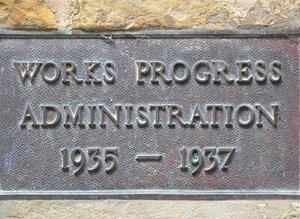Who’s Not Putting Americans Back to Work
With the encouragement of Mitt Romney, House Republicans are doing everything they can to keep Americans from getting work, just to defeat President Obama.House Republicans are doing everything they can to keep Americans from getting work, just to defeat President Obama.
The Federal Reserve report on Americans’ finances documents the terrible damage the Great Recession has inflicted on the nation, a toll that has been clear to its victims since the collapse began. The report’s dry language doesn’t begin to describe how bad things really are, and it stops short of blaming those who perpetuate the misery.
In pursuing this story since 2007, I and other journalists have seen foreclosed homes and visited unemployment offices, free food distributions, community health centers and mental health counselors. Former donors were now coming to free health clinics and food banks to get help themselves, an experience that will be forever remembered by their families. Lost homes, jobs and hopes are the legacy of this period.
The presidential campaign doesn’t reflect the urgency the situation demands. Republican Mitt Romney has nothing to offer except blaming President Barack Obama and joining with House Republicans in opposing presidential initiatives. Obama has some solutions, but doesn’t know how to sell them. The president had a chance last week when disappointing employment figures came out. Unfortunately at his news conference Friday, he reminded me of a bored university economics professor lecturing to an equally bored freshman class, not the nation’s leader who is in real danger of losing his office.
The Federal Reserve survey reported on consumers’ economic status from 2007, when the economy began to falter, to 2010, when the slow recovery began.
A family in the economic middle, between rich and poor, saw its net worth — the difference between gross assets and liabilities — drop almost 40 percent between 2007 and 2010. That brought the figure, the report said, “close to levels not seen since the 1992 survey.”
The recession hit everybody. “Net worth decreased for all education groups,” the report said. “Each of the four education groups experienced a very large decline … ranging from a drop of 53.7 percent for the no-high-school-diploma group to a drop of 32.7 percent for the high-school-educated group.” The declines were even lower for college graduates and those with some college. The net worth of people of color decreased more than that of whites.
As Obama talked about the weak economy at the news conference, he said the private sector was “doing fine.” It was the public sector dragging things down. It was an unfortunate way to put it, but Obama actually had it right.
Ben Polak, chairman of the economics department at Yale, and Peter Schott, a Yale School of Management professor, wrote in The New York Times Economix blog that “recovery in the private sector has not been particularly slow by recent historical standards. … But there is something historically different about this recession and its aftermath: In the past, local government employment has been almost recession-proof. This time it’s not. Going back as long as the data have been collected (1955), with the one exception of the 1981 recession, local government employment continued to grow almost every month regardless of what the economy threw at it. But since the latest recession began, local government employment has fallen by 3 percent, and is still falling.”
Part of the problem is local governments’ practice, during the good years, of agreeing to overly generous retirement and health benefits. But the federal government has also failed to help local governments with aid to prevent more employee layoffs and financing for their public works projects.
Take, for example, a job-creating bill that has been stalled in the House by Republicans. The measure would finance transportation projects around the country. “Clearly, the indecision in passing a transportation reauthorization bill is having a terrible impact on the construction industry — 28,000 construction jobs lost last month,” said the author of the Senate-passed bill, Sen. Barbara Boxer, D-Calif.
Every day, I see what good such proposals do. Four blocks from my house in Los Angeles, workers are widening one of the nation’s most jammed roads, Interstate 405. About a mile away, other workers are building the Expo commuter rail line, part of an expanding network. Without much media emphasis on the job aspect, these projects are already putting people to work in a county where unemployment is 11 percent, down during the Obama administration from a 2010 high of 13.4 percent. Many miles away, workers have started on the Gold Line commuter rail extension through the San Gabriel Valley, which business interests there say will create 2,630 construction jobs and 4,270 more in businesses related to the project. After watching the misery of the recession, it’s heartening to see men and women working on the roads and rail lines.
These are being financed by a local sales tax. Boxer wants to permit the federal government to loan money to local authorities to speed up work on such transportation projects. In Los Angeles County, proceeds from the sales tax would repay the loans.
This is just one program. There are others, blocked by House Republicans and opposed by Romney. Although they are not mentioned in the Federal Reserve report, these recalcitrant legislators — whose only goal is to defeat Obama, even at the cost of average Americans’ well-being — are the villains in this story.
Your support matters…Independent journalism is under threat and overshadowed by heavily funded mainstream media.
You can help level the playing field. Become a member.
Your tax-deductible contribution keeps us digging beneath the headlines to give you thought-provoking, investigative reporting and analysis that unearths what's really happening- without compromise.
Give today to support our courageous, independent journalists.






You need to be a supporter to comment.
There are currently no responses to this article.
Be the first to respond.